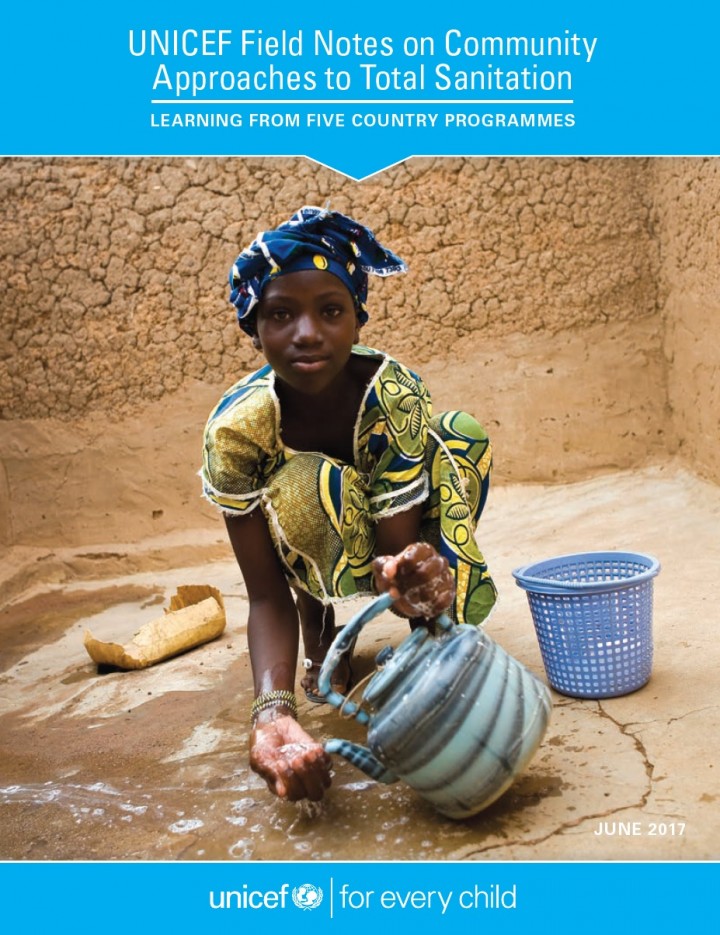UNICEF Field Notes on Community Approaches to Total Sanitation Learning From Five Country Programmes UNICEF (2017)
Community Approaches to Total Sanitation (CATS) aim to achieve 100 per cent open defecation free (ODF) communities through affordable, appropriate technology and behaviour change. Some of the key principles guiding CATS are:
• An emphasis on the sustained use of sanitation facilities by every community member, rather than simply the construction of infrastructure.
• The safe disposal of infant and young children’s faeces in toilets.
• Broad engagement with diverse members of the community, including households, schools, health centres and traditional leadership structures.
• That communities lead the change process and use their own capacities to attain their objectives. Their role is central in planning and implementing improved sanitation, taking into account the needs of diverse community members, including vulnerable groups, people with disabilities, and women and girls.
• That subsidies – whether funds, hardware or other forms – should not be given directly to households. Community rewards, subsidies and incentives are acceptable only where they encourage collective action in support of total sanitation and where they facilitate the sustainable use of sanitation facilities.
• That communities are supported to determine for themselves what design and materials work best for sanitation infrastructure, rather than standards being imposed on them. External agencies provide guidance rather than regulation. Thus, households build toilets based on locally available materials using the skills of local technicians and artisans.
• A focus on building local capacities to enable sustainability. This includes the training of community facilitators and local artisans, and the encouragement of local champions for community-led programmes.
• Government participation from the outset – at the local and national levels – which helps ensure the effectiveness of CATS and the potential for scaling up.
• That CATS have the greatest impact when they integrate hygiene promotion into programme design: the definition, scope and sequencing of hygiene components should always be based on the local context.
• That CATS are an entry point for social change – and a potential catalyst for wider community mobilisation.
Bibliographic information
UNICEF (2017). UNICEF Field Notes on Community Approaches to Total Sanitation Learning From Five Country Programmes UNICEF
Filter / Tags
Guidelines and manualsCase studies in other formatsEnglish
Downloads
UNICEF Field Notes on Community Approaches to Total Sanitation. Learning From Five Country Programmes
Type: application/pdf
Size: 6.59 MB

